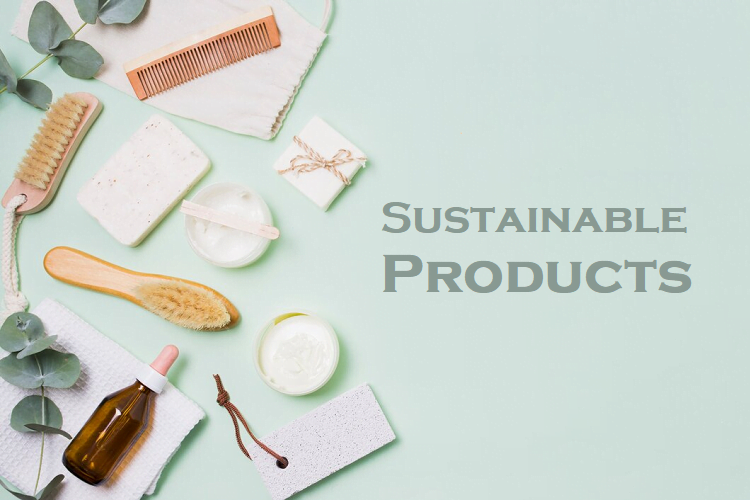From global warming to overflowing landfills, our planet faces serious threats. If left unchecked, Earth could experience higher sea levels, reduced biodiversity, and worsening severe weather. The good news is small changes can have a large impact over time. Swapping out frequently used sustainable products can help you do your part to protect the planet.
Not sure where to start? Outlined below are six eco-friendly switches to help you live more sustainably.

1. Plant-Based Protein
While a cheesy hamburger may sound tasty, it’s not doing the planet any favors. Meat and dairy production are among the leading causes of greenhouse gas emissions. Furthermore, farm animals require a huge amount of land and fresh water to raise. To help reduce your ecological footprint, skip the animal products a few times a week and opt for plant-based foods instead.
Many athletes and active individuals are concerned that they won’t meet their protein goals if they eat a plant-based diet. Contrary to popular belief, animal products aren’t the only protein sources available. Legumes, grains, and nuts are all wonderful ways to get protein. And folks with high protein requirements can consume pea protein beverages to help ensure they meet their wellness goals.
2. Sustainable Pet Supplies
Pet owners love to spoil their furry friends with stylish leashes, tasty treats, and engaging toys. While everyone wants to ensure their pets are happy and comfortable, carelessly buying products can lead to a huge amount of waste. In fact, just feeding your feline and canine companions can add 64 million tons of carbon dioxide into the environment every year. Although people can’t reduce how much food their animals eat, there are other steps owners can take to reduce their pets’ ecological pawprint.
One of the less desirable aspects of pet ownership is tidying up your animal’s waste. Unfortunately, many common cleanup practices aren’t environmentally friendly either. Rather than using non-degradable poop bags or non-recyclable kitty litter, opt for environmentally friendly alternatives. Dog owners can use biodegradable waste bags or a waste scooper to put poop directly into a trash bag that’s already in use. Cat owners can replace traditional litter with sustainable products like wood shavings or paper pellets.
3. Thrifted Clothes
The need to keep up with the latest fashions isn’t just bad for your budget. It’s also hard on the planet. The U.S. tosses 11.3 million tons of textiles every year. That factors out to about 2,150 clothing items every second. Only a small portion of that waste gets recycled. The rest ends up in a landfill, releasing methane and carbon dioxide into the atmosphere.
If you want to reduce your environmental impact, kick fast fashion to the curb and buy thrifted clothing items instead. Purchasing clothes from secondhand stores keeps them out of landfills and reduces the need to destroy natural habitats to create more landfills. Most communities have local secondhand shops. But if you prefer shopping online, there are plenty of digital thrift stores to visit as well.
4. Reusable Shopping Bags
Plastic isn’t a biodegradable material, so where does it go when you’re done using it? If your disposable bags and cups don’t end up in a landfill, they litter the natural environment, harming plants and animals. It’s hard to see photos of marine life tangled in plastic goods, but you don’t have to sit idly by and watch. Replacing disposable items with reusable options can help lessen your ecological footprint.
One easy way to cut down on plastic pollution is by switching to reusable shopping bags. When purchasing reusable bags, it’s a good idea to get a variety of styles. Buying net bags for produce and freezer bags for cold food means you’ll always have the best bags for the job. This makes it more likely that you’ll stick with your new habit.
5. Bidets
While toilet paper is biodegradable, it still takes its toll on the environment. This restroom essential is made using tree fiber, meaning thousands of trees are cut down each day to produce it. Furthermore, the pulp mills used to make toilet paper require a substantial amount of water. So your daily trips to the toilet can have a huge environmental impact if you’re not careful.
For a more environmentally friendly choice, consider purchasing a bidet. While bidets use around one-eighth of a gallon of water each use, this is far less water than is required to make toilet paper. Additionally, bidets don’t require any paper, meaning you’ll be saving trees from the ax.
6. Reusable Straws
Metal straws seem like the new drinking trend, but they’re more than just a cool beverage accessory. Like plastic bags, plastic straws wind up in landfills or polluting our environment. Many end up in oceans and waterways, where they collectively block sunlight from plankton and algae. Without these lifeforms, the entire marine ecosystem is harmed.
Swapping plastic straws for reusable ones helps reduce the amount of pollution that enters the ocean. Many people go for metal straws, but there are other options as well. If you enjoy drinking hot beverages, consider purchasing a glass model. Unlike metal straws, glass straws don’t transfer heat, keeping you from burning your mouth.
The environmental crises Earth is experiencing are alarming, but there are steps you can take to help. By implementing the product swaps above, you’ll reduce your environmental impact and do your bit to heal the planet.



